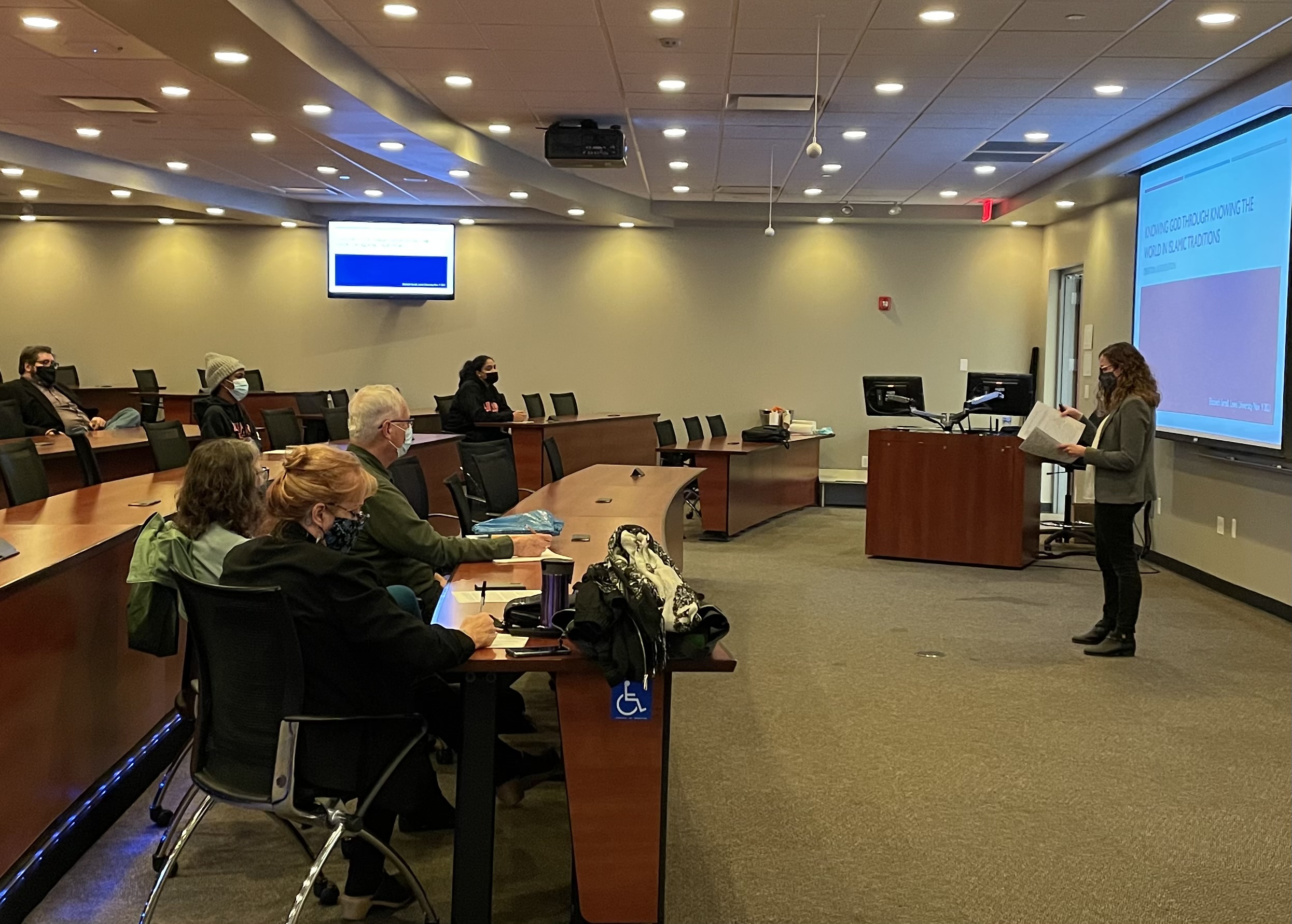
On Nov. 9, assistant theology professor Elizabeth Sartell, spoke at an Arts and Ideas event titled, “Knowing God through Knowing the World in Islamic Traditions,” which explored the idea of contemplation of creation. The Arts and Ideas event took place in classroom AS158, located in the Arts and Science building.
With this event, the three fields of study like science, philosophy and religion, come together in the service of seeking divine truths in Islamic intellectual and spiritual traditions.
“In the presentation, I will explore the understanding of creation as revelation in the Qur’an,” said Sartell. “Contemplation and study of creation thus becomes a way in which science, philosophy and religion come together in the service of seeking divine truths in Islamic intellectual and mystical traditions.”
According to Sartell, this event is a part of the Science and Faith series, which included three monthly presentations during the semester, each of which explore the dynamic harmony and tensions between religious faith and the natural sciences from various vantage points.
The first presentation was given by the Dean of the College of Aviation, Science and Technology Chris White and Physics Department Chair Joseph Kozminski in September. The keynote of this series, titled “Brother Bernard Rapp, FSC, Lecture on Faith & Science,” was given by the Director of the Vatican Observatory in Rome, Brother Guy Consolmagno last month.
“This final talk wraps up the fall series and offers a perspective from Islamic traditions and the series was organized by Dr. Dominic Colonna, Professor of Theology, in collaboration with the Office of Mission and Identity,” said Sartell. “The Science and Faith Series is supported by the Cumbee Catholic Scholars Initiative.”
At the event, both students and staff looked at many different verses of the Qur’an. They were examples of various themes of the Quranic Story of Creation, like the nature of God and cosmology.
“The event is a presentation that will offer a Qur’anic perspective on creation and together, we will explore the origin story in the Qur’an and think about its framing and its themes,” said Sartell. “Through close reading and conversation, we will consider the concept of revelation in Islamic traditions and whether the natural world might be considered part of divine revelation.”
Students were encouraged to attend because this event was a part of the Science and Faith series. They all bring important perspectives to the Lewis community about the ways in which natural sciences and the study of the world might intersect with religious traditions and the study of God.
“This event in particular, I hope, brought an interesting approach to the Science and Faith series by thinking about creation stories, and approaching the question of science and religion from within the Islamic tradition,” said Sartell. “By thinking about creation stories from the Islamic tradition, I hope that this event will broaden the conversation about science and faith within the Lewis community, inviting students to engage with multiple religious traditions.”
By offering a lecture focused on Islamic scripture, Sartell hopes to further interfaith understanding of diverse religious cultures, rooted in an open and honest engagement with Islam through its own sources and sacred text.
“I am always happy to meet students interested in learning more about Islam or about Abrahamic traditions in conversation,” said Sartell.
Photo Credit: Katelyn Leano
